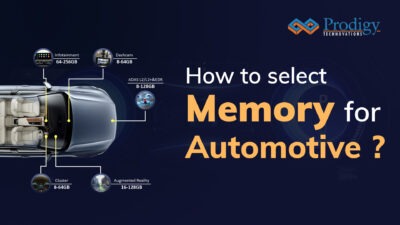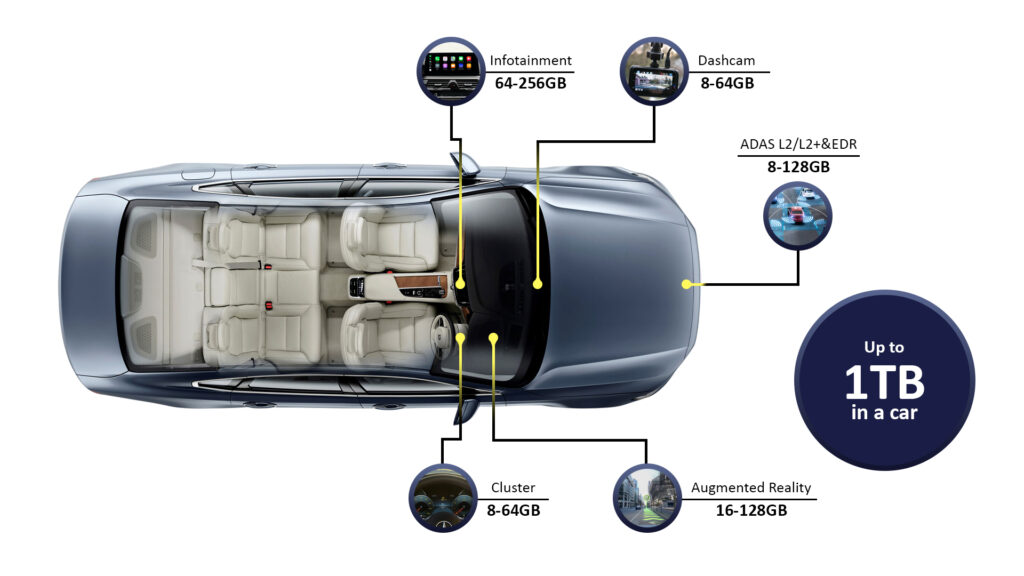
How to select memory for automotive?
Current Challenges in Automotive flash storage Technologies
The automotive industry is going through a mega transformation. The consumer-based digital technologies and experiences are taking over car vehicle Information systems. Consumers are asking for cars with mobile-like experiences pushing the car OEMs and manufacturers to look for next-generation In-vehicle entertainment display and storage solutions. The cars are getting connected to the cloud as well creating a need for storage on the edge of the car as well storage on the cloud. The need for faster high-performance memory is the need of the hour. The number of data in the current generation of cars is increasing to 4TB per day.
How does the car OEM go ahead and select the next-generation storage solution?
What are the factors for selecting the automotive storage solution?
The automotive storage solution is selected based on the following factors
- Speed
- Storage Capacity
- Performance
- Data Integrity
- Reliability
- Hi-speed Performance
- Support Various kinds of Workloads- Read, Write, a mix of read and write.
The next-generation cars have various applications such as an Infotainment system, ADAS, and cloud connectivity. Each of these applications needs a different kind of memory with different interfaces and speeds.

The emmC is for the storage of maps and GPS navigation data. The UFS will need to support the Infotainment system with high-speed read cycles. The Cloud data will be stored in PCIe-based NVMe which will help in the machine learning and deep learning computations.
Challenges with current storage or memory systems in the car
Data Integrity and Reliability are one of the biggest concerns in the automotive system. There are regular power fluctuations causing data in the memory to get corrupted. Plus long storage cycle compared with frequent reads and writes can also reduce the life cycle of the flash device. To address the data integrity issues there is a need to build a system for error detection and error correction. Some of the memory vendors provide good solutions for detecting errors. Another challenge the automotive subsystem faces is the variation of temperature. The memory is subject to extreme variations in temperature during the lifecycle of the automobile.
Prodigy Technovations offers state of art advanced tools to test UFS, emmC, and PCIe interfaces of the memory. The tools can help automotive car manufacturers debug protocol data and help find out very critical timing and protocol integrity issues.



